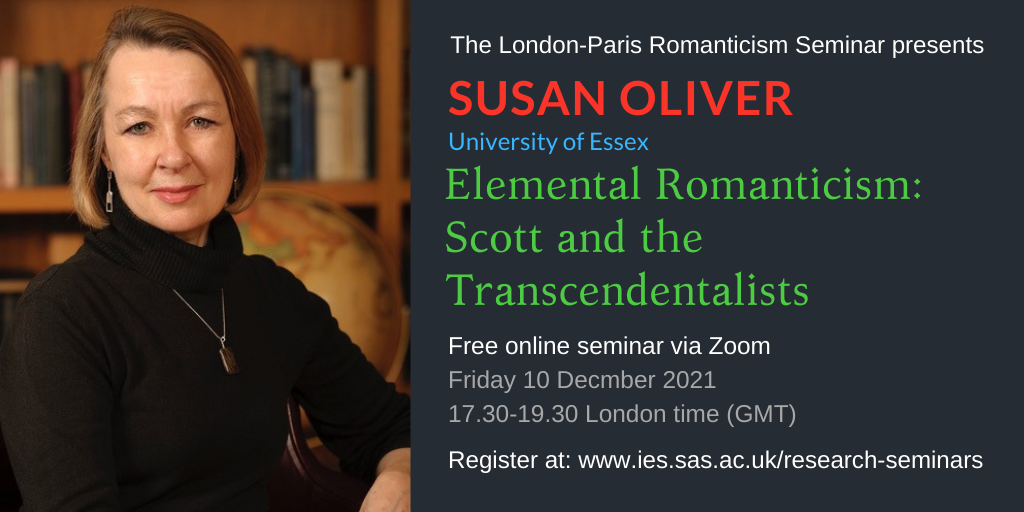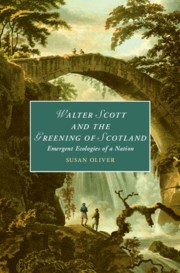
The next meeting of the London-Paris Romanticism Seminar will take place via Zoom on Friday 10 December 2021 at 17.30-19.30 London time (GMT). As our guest speaker, we are delighted to welcome Professor Susan Oliver of the University of Essex, who will present a paper entitled Elemental Romanticism: Scott and the Transcendentalists. This will be followed by a discussion in which questions from the audience are invited. The seminar will be chaired by Rowan Boyson (King’s College London).
The seminar is free and open to everyone. Prior registration is necessary. To book a place via the Institute of English Studies website, click here. When you register, you will be provided with a Zoom link and details of how to join the online forum. Whether you wish to contribute or simply to listen in, we invite you to join us.
Susan Oliver is Professor of Literature and Faculty Dean of Research at the University of Essex. Her books include Walter Scott and the Greening of Scotland: Emergent Ecologies of a Nation (2021) and Scott, Byron and the Poetics of Cultural Encounter (2005), for which she was awarded the 2007 British Academy’s Rose Mary Crawshay Prize. She recently published “Reading Walter Scott in the Anthropocene,” in Walter Scott at 250: Looking Forward, edited by Caroline McCracken-Flesher and Matthew Wickman, and edited the 2017 Yearbook of English Studies, issue title Walter Scott: New Interpretations. Susan was a panelist at the National Gallery’s event Life Inside the Hay Wain: John Constable’s Landscapes 200 Years On in April and is a regular contributor to blogs and podcasts on environmental arts and humanities. She is leading the development of an Environmental Arts and Humanities Hub for research and education at the University of Essex.
Regarding the topic of her paper, Susan writes:
“In my recently published book Walter Scott and the Greening of Scotland: Emergent Ecologies of a Nation (CUP, 2021), part of my enquiry looks at how Scott approached the elemental aspects of stone, water and air, making comparisons forwards across the Atlantic to the mid-19th-century and the transcendentalists. My reading throughout puts ecologies and the environment front and centre in approaching Scott’s poetry, fiction and prose non-fiction. An underlying premise is that literature is one our best means of developing historical approaches to environmental change, helping us better to know how such changes were understood. There are onward repercussions for our own 21st century climate emergency. A central point in my argument is that potent agencies from the non-human world, often in the form of assemblages, shape the way that the literary imagination responds. This paper takes my book as its starting point, then introduces further comparisons that investigate the roles played by stone, water and air in the work of Scott, Henry David Thoreau, Margaret Fuller and Ralph Waldo Emerson.”
